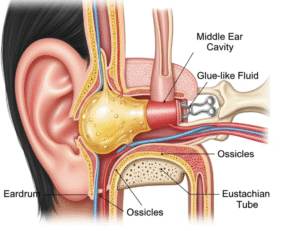In South Korea’s fast-paced, high-pressure work culture, work-life balance has become a crucial issue not only for productivity but also for overall men’s health and well-being. For decades, long working hours and intense social expectations have shaped how men define success — often at the cost of physical and mental wellness. Today, however, attitudes are shifting. As Korean society moves toward valuing holistic well-being and family engagement, more men are learning that a balanced lifestyle isn’t a luxury — it’s a foundation for health, happiness, and longevity.
Changing Definitions of Masculinity and Success
Traditional Korean culture emphasized dedication to work, career advancement, and financial responsibility as the core of manhood. But this expectation has led many men to experience chronic stress, burnout, and health problems.
● Cultural Pressure: Many men feel the need to work long hours to provide for family stability and social respect.
● Overwork Statistics: Korean men work an average of 44–50 hours per week, among the longest in the OECD.
● Limited Personal Time: After long hours, many face additional expectations of social drinking (회식) or networking, further reducing rest time.
This lifestyle often results in fatigue, poor diet, reduced exercise, and emotional disconnection. However, modern shifts in culture — especially among younger generations — are encouraging men to prioritize balance and health alongside ambition.
The Physical Impact of Poor Work-Life Balance
Excessive work and lack of rest take a measurable toll on men’s physical health.
● Cardiovascular Risks: High stress and sedentary lifestyles contribute to hypertension and heart disease — leading causes of male mortality in Korea.
● Weight Gain and Metabolic Issues: Skipped meals or late-night dining, combined with limited activity, can result in obesity, diabetes, and liver problems.
● Sleep Deprivation: Chronic lack of sleep reduces immunity, increases irritability, and impairs concentration.
● Reduced Energy and Endurance: Overwork without recovery leads to persistent fatigue, lower testosterone, and weaker overall vitality.
● Musculoskeletal Pain: Office workers often experience neck, back, and shoulder strain from long hours at desks.
Medical professionals increasingly highlight that preventive health and balanced routines are essential for maintaining men’s vitality throughout middle age and beyond.
The Mental and Emotional Dimensions
Work-life imbalance affects more than the body — it deeply impacts mental and emotional well-being.
● Stress and Burnout: Constant pressure to perform can lead to exhaustion, irritability, and reduced motivation.
● Depression and Anxiety: Men often underreport mental distress due to cultural stigmas around showing vulnerability.
● Social Isolation: Focusing exclusively on work limits meaningful social and family relationships.
● Identity Struggles: Some men struggle with redefining success in a culture still dominated by traditional gender expectations.
Korean companies and government programs are now recognizing that mental wellness is as important as productivity, driving initiatives to reduce overwork and normalize counseling and mental health days.
Shifting Workplace Culture and Policy
Recent years have seen major changes in how Korea approaches work-life balance, especially for men.
● Shorter Working Hours Law: The Korean government implemented a 52-hour workweek limit to protect worker health and encourage personal time.
● Flexible Work Systems: Companies increasingly offer remote work, flex-time, and four-day workweeks to reduce commuting stress.
● Paternity Leave Expansion: Policies now allow up to one year of paternity leave, encouraging men to engage in parenting and family life.
● Corporate Wellness Programs: Many firms have added on-site gyms, mental health counseling, and relaxation areas to promote daily well-being.
● Workplace Wellness Campaigns: Initiatives like “Happy Workplace” and “Balance Korea” encourage employees to focus on holistic health.
These cultural and structural changes mark a slow but significant shift toward sustainable living for working men.
Lifestyle Adjustments for Better Balance
Creating a balanced lifestyle requires conscious effort and discipline. Korean men are increasingly turning to wellness-oriented habits to reclaim their health.
● Regular Exercise: Daily walks, home workouts, and fitness centers help reduce stress and boost cardiovascular health.
● Mindfulness and Meditation: Practices such as yoga or deep breathing exercises help manage anxiety and promote focus.
● Healthy Diets: Many men are adopting low-sodium, high-protein meals and cutting down on alcohol-heavy social gatherings.
● Quality Sleep: Prioritizing rest and maintaining a consistent sleep routine strengthens both mind and body.
● Family Engagement: Spending quality time with children and partners fosters emotional connection and fulfillment.
● Time Management: Setting clear work boundaries — no late-night emails or weekend tasks — helps maintain energy and motivation.
Simple but consistent changes can create profound improvements in long-term health and happiness.
The Role of Employers in Men’s Wellness
Corporate culture plays a defining role in shaping men’s health behaviors. Progressive Korean employers are realizing that wellness improves performance and retention.
● Wellness Incentives: Companies offer rewards for participation in health checkups, step challenges, or smoking cessation programs.
● Mental Health Access: On-site counseling centers or digital therapy platforms make emotional support confidential and convenient.
● Physical Fitness Facilities: Office gyms, stretch breaks, and standing desks promote movement throughout the day.
● Team Culture Reform: Some firms are limiting mandatory after-work gatherings, allowing employees more personal and family time.
● Health Education Workshops: Employers invite nutritionists, trainers, and psychologists to conduct sessions on maintaining balance.
Such initiatives demonstrate that a healthier workforce is a more resilient and productive one.
The Benefits of Work-Life Balance on Men’s Health
A balanced lifestyle provides tangible, long-term benefits for men across all stages of life.
● Improved Heart and Metabolic Health: Regular activity and reduced stress lower the risk of chronic diseases.
● Enhanced Mental Clarity: Rest and relaxation improve focus and creativity at work.
● Stronger Relationships: Time spent with loved ones builds emotional stability and social fulfillment.
● Greater Life Satisfaction: Balanced living aligns personal values with daily actions, promoting overall happiness.
● Sustainable Career Growth: Men who maintain balance tend to experience less burnout and more consistent productivity.
Ultimately, balance fuels success, allowing men to perform better at work while leading healthier, more rewarding lives.
Societal Shifts Toward Well-Being
Beyond workplaces, the entire Korean society is beginning to embrace wellness as a core value.
● Public Health Campaigns: Government projects encourage exercise, mental health awareness, and family time.
● Media Representation: Korean dramas and social media now highlight men who prioritize family and self-care, reshaping public attitudes.
● Wellness Tourism: Resorts and retreats cater to professionals seeking stress relief and personal reflection.
● Generational Change: Younger men, especially in their 20s and 30s, prioritize happiness and flexibility over traditional career hierarchies.
This evolving mindset is paving the way for a healthier, more emotionally intelligent workforce and society.
Challenges Ahead
Despite progress, barriers to full work-life balance remain.
● Corporate Resistance: Some industries still prize long hours and presenteeism.
● Cultural Stigma: Men who seek therapy or take paternity leave may face outdated stereotypes.
● Economic Pressures: Rising living costs and job insecurity make it difficult to prioritize personal time.
● Self-Expectations: Many men still equate self-worth with professional achievement, making balance hard to maintain.
Overcoming these challenges requires continued education, policy enforcement, and cultural evolution that values well-being as deeply as success.
Future Outlook
Korea’s growing focus on work-life balance is setting a foundation for a healthier, happier generation of men.
● More Flexible Work Models: Hybrid schedules and remote work options will become standard.
● National Wellness Framework: The government aims to integrate mental and physical health policies into labor standards.
● Corporate Leadership Training: Executives are being trained to promote well-being and empathy within teams.
● Community Wellness Programs: Local health centers and organizations will expand men’s fitness, counseling, and nutrition workshops.
As balance becomes part of Korea’s social DNA, men will have more opportunities to live with purpose, health, and emotional awareness.
Final Thoughts
Korea’s evolving view of work-life balance is not just a trend — it’s a transformation of values. For Korean men, finding balance means rediscovering the connection between ambition and well-being. A balanced life is no longer a sign of weakness or complacency but a symbol of wisdom and strength.
● Health and success thrive together when life is balanced.
● Strong men know when to rest, reflect, and reconnect.
● Korea’s future depends on men who live well, not just work hard.
As Korea continues to champion wellness across workplaces and homes, it is redefining modern masculinity — proving that true strength lies in harmony, not exhaustion.













